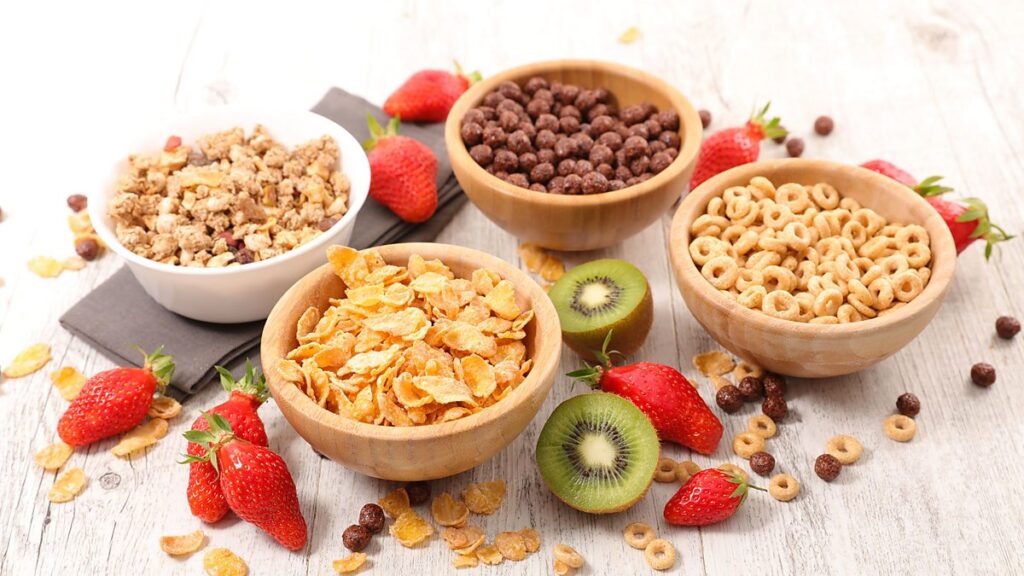Breakfast cereals have been gaining popularity worldwide. It’s incredible how these little crunchy delights have taken over breakfast tables. They’re the ultimate time-saver for busy bees and the savior for those who can’t cook to save their lives. But are these breakfast cereals really healthy? Continue reading to find out.
Whether breakfast cereals are healthy or not depends on the specific type of cereal and its ingredients. Some breakfast cereals can be a nutritious and convenient option for breakfast, while others may be high in sugar, refined grains, and artificial additives, making them less healthy.
You would be surprised to know that the GI (the rate at which sugar rises in the blood after eating them) for corn flakes (81) is higher than potato chips (78), White bread (75), White rice (73).
Corn flakes are highly processed, contain added sugar, salt and other flavorings. Some of the lost vitamins and minerals are added back in fortified cereals.
If you want to have cereal for breakfast then choose high fibre bran flakes or whole grain muesli that are not coated with sugar or honey. You can add fresh fruits, nuts and seeds to make the meal wholesome and nutritious.
Here are some points to consider when evaluating the healthiness of breakfast cereals:
- Nutritional Content: Look for cereals that are rich in essential nutrients such as fiber, vitamins (especially B vitamins), and minerals like iron and calcium. Whole grains are preferable over refined grains as they provide more nutrients and fiber.
- Sugar Content: Pay attention to the sugar content in cereals. Some cereals marketed as “healthy” or “low-fat” can contain high amounts of added sugars, which are not beneficial for your health. Choose cereals with little to no added sugars.
- Fiber Content: A good breakfast cereal should have an adequate amount of dietary fiber. Fiber helps with digestion, promotes satiety, and can be beneficial for heart health.
- Whole Grains: Opt for cereals made from whole grains, as they contain more nutrients and fiber than refined grains.
- Portion Size: Even healthy cereals can become unhealthy if you consume them in excessive amounts. Be mindful of portion sizes to avoid overeating.
- Additives and Preservatives: Check the ingredient list for artificial additives, preservatives, and other chemicals. Aim for cereals with minimal or no artificial additives.
- Protein Content: Some cereals may lack protein, which is an essential macronutrient. Consider pairing your cereal with a protein source like milk, yogurt, or nuts to enhance its nutritional value.
- Avoid “Frosted” or “Sweetened” Varieties: Cereals with frosted, sweetened, or chocolate-coated ingredients tend to be higher in sugar and lower in nutritional value.
- Individual Health Considerations: Consider your own health needs and dietary restrictions. For example, people with gluten sensitivity or celiac disease should choose gluten-free cereals.
- Homemade Cereal: Another option is to make your own cereal mix using wholesome ingredients like oats, nuts, seeds, and dried fruits. This way, you can control the ingredients and avoid unnecessary additives.
In summary, breakfast cereals can be part of a healthy breakfast if you choose wisely. Always read the nutrition label and ingredient list to make informed decisions. A balanced breakfast that includes a variety of whole foods like fruits, vegetables, proteins, and healthy fats will contribute to overall better health.

